April 2017 Metrics Report
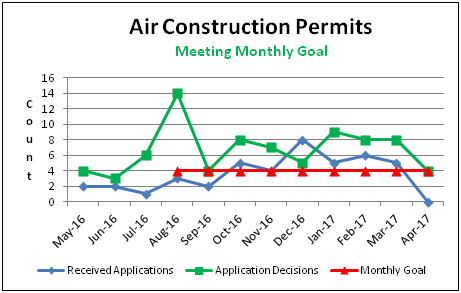
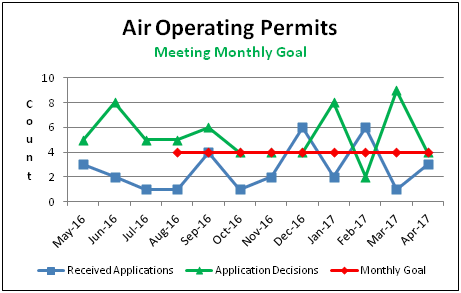
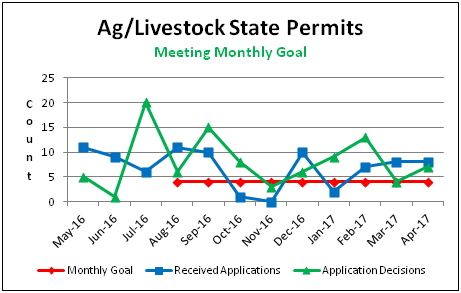
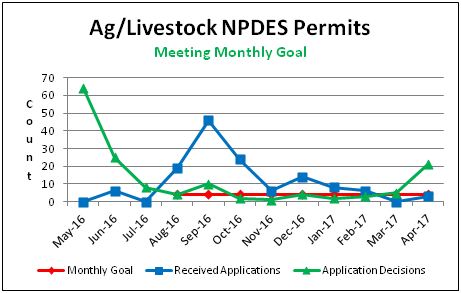
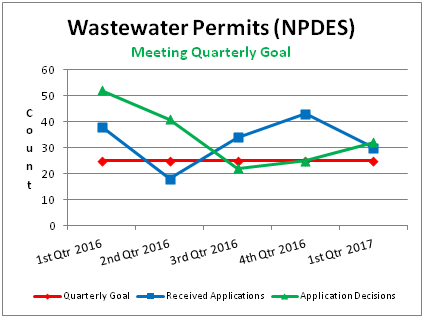
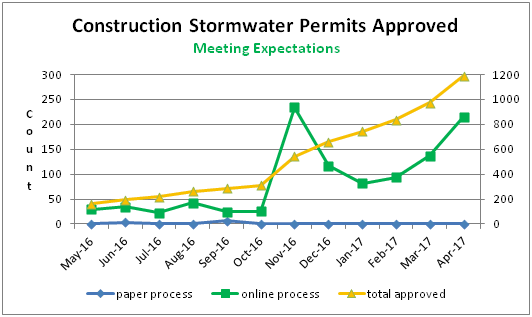
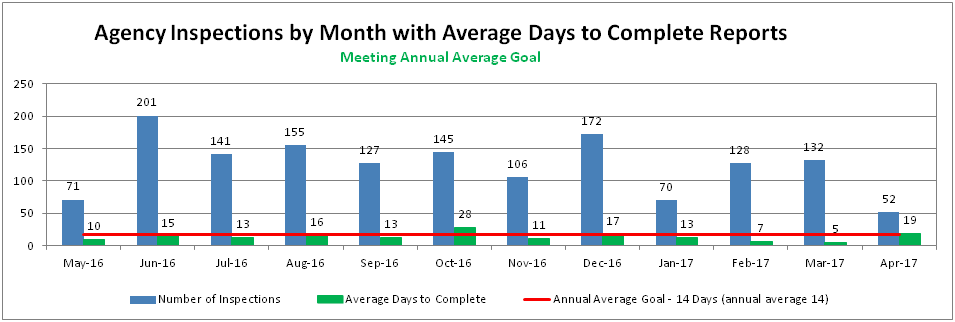
Scrap Tire Cleanups
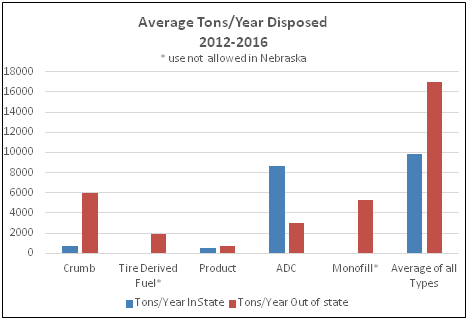
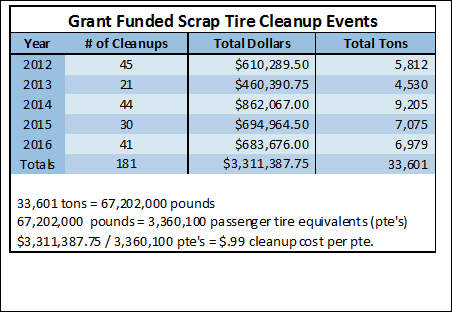
- Fees on the purchase of new tires ($1.00 per tire) have funded significant portions of Nebraska's solid waste management programs - grants and solid waste management operations of NDEQ.
- Grant funds have been used to clean up a significant number of waste tire piles since the program began in 1992
- Various uses of waste tires have been developed but few are considered “high-end” use, e.g. production of crumb rubber. The majority of Nebraska’s waste tires are monofilled out of state (this use is against the law in Nebraska), or shredded and used as alternate daily cover in landfills.
- There are no facilities in Nebraska that produce crumb rubber, which is found in athletic fields, running tracks, playgrounds, and a variety of other products.
- Scrap tire cleanup events, when citizens are allowed to drop their waste tires off at events sponsored by political subdivisions, remain one of the largest uses of the NDEQ tire grant program. These grants may be credited for preventing the buildup of illegal waste tire piles.
- NDEQ is in the midst of an examination of all solid waste management programs in an effort to improve solid waste management in the state. The management of tires is expected to be one of the components examined in this effort.
Emerging Issues/Risks: The Public Service Commission (PSC) requested NDEQ to review an alternate route for the TransCanada Keystone Pipeline. NDEQ completed a review and informed the PSC that no issues were identified with the alternate route.
Through April, NDEQ closely monitored ambient air quality in southeast Nebraska in relation to prescribed fires set in the Flint Hills region of Kansas. At times, this burning has caused compromised ambient air quality in southeast Nebraska. NDEQ is continuing discussions with both the Kansas Department of Health and Environment and experts in prescribed fires in an attempt to better understand and address air quality and public health impacts. There are numerous variables that impact ambient air and no easy fixes to this complex situation.
Accomplishments: NDEQ recently celebrated six years of utilizing the Hyland OnBase Enterprise Content Management (ECM) System. Over 120,000 images have been entered into the system since April 11, 2011. The ECM allows the NDEQ to provide real time access to facility information maintained in NDEQ files. This is particularly useful to the inspectors in NDEQ’s seven Field Offices who now have current facility information at their fingertips to effectively prepare for an inspection. Additionally, the public, consultants and regulated facilities have access to current facility information maintained by NDEQ.
DEQ has approved over 1,000 online applications for coverage under the stormwater construction general permit. Previously, it would take two weeks or more for an applicant to receive coverage; through the new process, the timeframe has been reduced to less than a day in most cases.
Misc. Items of Note: On April 13th NDEQ entered into a contract with Engineering Solutions and Designs for preparation of the Solid Waste Management Programs Study required by LB 1101, passed last legislative session. The Scope of Work contained in the Request for Proposals was prepared with the assistance of a nine-member advisory committee appointed by Director Macy. The Committee asked that specific attention be given to the following areas: recycling and composting, materials management, collection of needed information, solid waste management grant programs, and landfill bans. NDEQ anticipates holding public meetings after a draft of the consultant’s report has been completed in October. NDEQ will submit recommendations to the Legislature by December 15th as to steps that could be taken to modernize and revise NDEQ’s solid waste management programs.